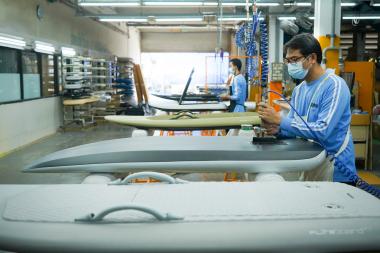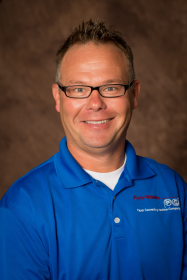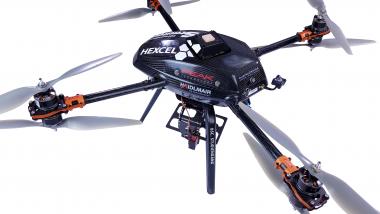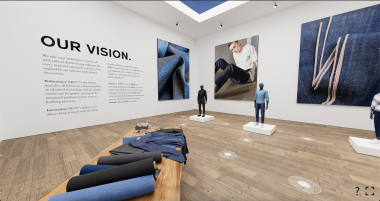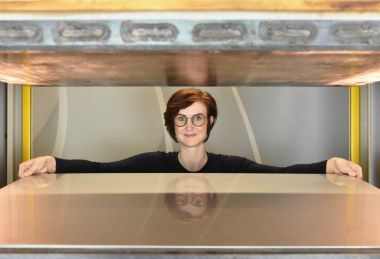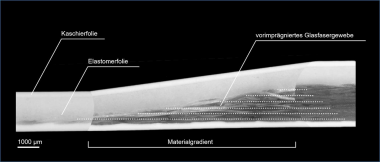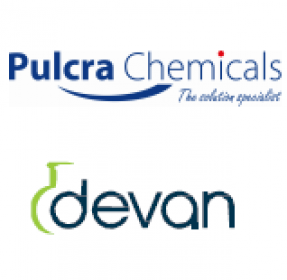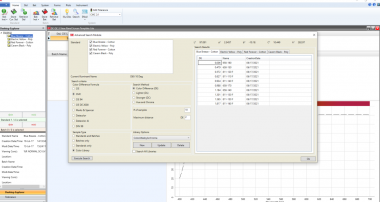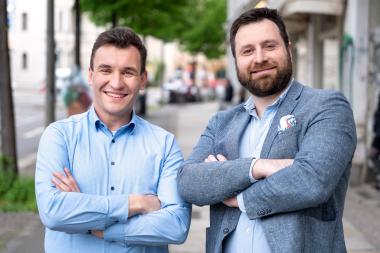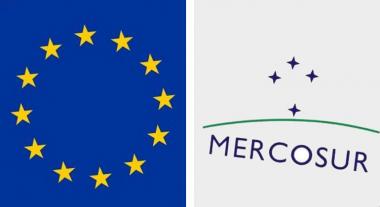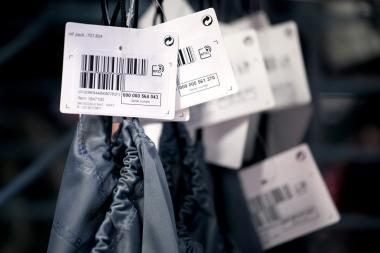Checkpoint Systems: RFID-Lösungen für LPP
Das polnische Einzelhandelsunternehmen LPP mit den Bekleidungsmarken Reserved, Cropp, House, Mohito und Sinsay hat in mehr als 450 Geschäften gemeinsam mit Checkpoint Systems RFID-Technologie implementiert, weitere 900 sind in Vorbereitung. Seitdem konnten der Umsatz um drei Prozent gesteigert, die Bestandsgenauigkeit sowie die Regalverfügbarkeit auf 99 Prozent erhöht und die Dauer des Kassiervorgangs um durchschnittlich 70 Prozent reduziert werden. Auch während der pandemiebedingten Ladenschließungen zeigten sich die Vorteile der RFID-Lösungen von Checkpoint Systems bei der Umstellung auf den reinen Online-Verkauf.
Checkpoint Systems entwickelte einen dualen RF- und RFID-Tag, der sich harmonisch in die Ästhetik und das Gesamtdesign der Läden von LPP einfügte, ohne dass dies zu Verzögerungen für den straffen Gesamtzeitplan sorgte. Mit diesem für LPP gestalteten dualen Tag wurden alle Kleidungsstücke bereits an der Quelle gekennzeichnet (in Zusammenarbeit mit den Lieferanten von LPP), während parallel zwei Distributionszentren in unter einem Jahr mit 30 RFID-Tunnels ausgestattet wurden, die diese Tags lesen und kodieren können.
Kassiervorgang beschleunigt
Obwohl die weltweite Implementierung noch läuft, ist bereits klar, dass die ursprünglichen Ziele des Projekts erreicht und übertroffen wurden. Bei den schon mit RFID-Technologie ausgestatteten Geschäften liegt die Regalverfügbarkeit bei 99 Prozent. Das ist eine Steigerung von circa 13 Prozent gegenüber dem Projektbeginn. Auch die Bestandsgenauigkeit liegt bei 99 Prozent. Die Dauer des Kassiervorgangs konnte im Durchschnitt um 70 Prozent reduziert werden. Bereits beim Entfernen der Sicherungsetiketten, die mit RFID-Tags ausgestattet sind, werden die Produktinfos und der Preis an die Kasse übertragen – so entfällt das separate Einscannen der Barcodes. Von dieser Zeitersparnis profitieren auch die Kund*innen im Geschäft. Darüber hinaus konnte LPP seit der Einführung der Technologie einen Umsatzanstieg von drei Prozent verzeichnen. Die Technologie von Checkpoint Systems ermöglicht es durch die Analyse von Topsellern auch, den Bestand genauer auf die Bedürfnisse der einzelnen Filialen hin zuzuschneiden. Wichtig war LPP zudem das Thema Nachhaltigkeit: Alle Hard-Tags von Checkpoint Systems sind innerhalb der Lieferkette wiederverwendbar.
Reibungslose Umstellung auf den Onlinehandel
Während der Implementierungsprozess in vollem Gang war, brachte die Covid-19-Pandemie den stationären Einzelhandel zum Stillstand. Für LPP erwies sich die Umstellung auf den reinen Onlinehandel dank der RFID-Technologie als unkompliziert. Durch die verbesserten Abläufe in den Distributionszentren sowie die Bestandsgenauigkeit von 99 Prozent verlief die Umstellung auf einen reinen Online-Verkauf vergleichweise reibungslos.
Der Einsatz von RFID-Lösungen von Checkpoint Systems wird bei LPP ausgebaut. In Planung sind etwa der Ausbau von Omnichannel-Strategien und intelligente Umkleidekabinen.
Checkpoint Systems LPP RFID Textil- und Bekleidungsindustrie Einzelhandel Stationärer Einzelhandel Onlinehandel Nachhaltigkeit
Checkpoint Systems / Carta GmbH









